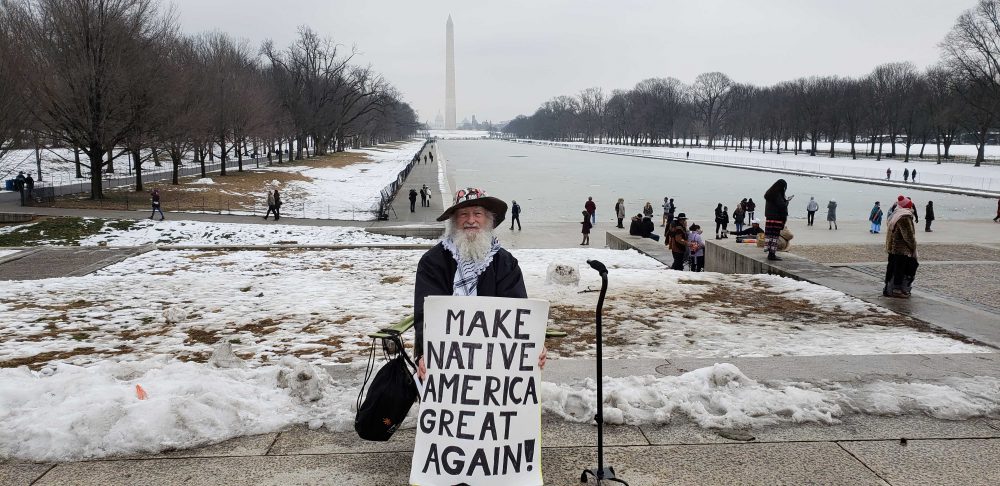WASHINGTON – Amid clouds of ceremonial smudging smoke, hundreds gathered Friday for the first Indigenous Peoples March to raise awareness of injustices affecting native people worldwide and focused on missing or murdered Native American women.
Organized by the Indigenous Peoples Movement, the march served as a way to focus on injustices against indigenous people worldwide, including sex and human trafficking, environmental degradation, mistreatment by police and the military, and voter disenfranchisement.
Native Americans often face dangers that get little publicity, according to the marchers. A study specifically looking at missing and murdered Indigenous women in 71 cities found that “murder is the third-leading cause of death of American Indian women,” according to this NPR story.
“And rates of violence can be up to 10 times higher than the national average on reservations,” Annita Lucchesi, one of the researchers for the study, told NPR.
Roxanne White, a Seattle-based advocate for missing and murdered indigenous relatives, asked all the women who work the cases of or have had missing or murdered relatives to join her on the mainstage during her speech.
“We came to say the names of the ones that are missing,” she said. “Presently my cousin, Rosenda Strong, has been missing since Oct. 2, 2018, from the Yakama Indian Reservation. Rosenda Strong, say her name!”
Women stood throughout the crowd holding signs with more than 35 names of missing or murdered women. Others held red silhouettes of relatives to represent missing or murdered family members or unsolved cases. Some people also wore red shirts that said “No More Stolen Sisters.”
Social worker Spence Clifford WolfCrier PeaceMaker traveled from Clarksburg, West Virginia, to attend the event, using the smudging — a Native American ritual — to burn away negative energy and spirits. PeaceMaker also waved the smudging near the family members of those whose relatives have disappeared or been killed.
“The purpose of smudging, which is what this is called — when you waft it over the body and the spirit — it cleanses the body and spirit,” said PeaceMaker. “And we do that before we enter any sort of sacred ceremony, enter the sacred circle, enter sacred ground and it is also a sense of protection.”
Activists also talked about how environmental issues have affected their lives, from forcing elders to use outhouses due to lack of indoor plumbing to the need for clean water.
One activist said that she lost her mother due to stomach cancer because their water was contaminated with uranium.
People in the crowd displayed “Water is Life” signs in support of the global water protection group that also advocates for indigenous rights.
“…There are people who are living in Third World conditions — they don’t have access to clean drinking water,” said Ashley Callingbull, the first indigenous Canadian woman to win Mrs. Universe.
Callingbull said she didn’t find many differences between the experience of indigenous people in the United States compared to Canada, noting that there were other solidarity marches occurring.
“I think that’s amazing because the people that can’t make it are still celebrating and uniting together in other places around the world,” said Callingbull. “So it doesn’t matter where you come from or what you look like, if you’re indigenous, you’re indigenous.”

